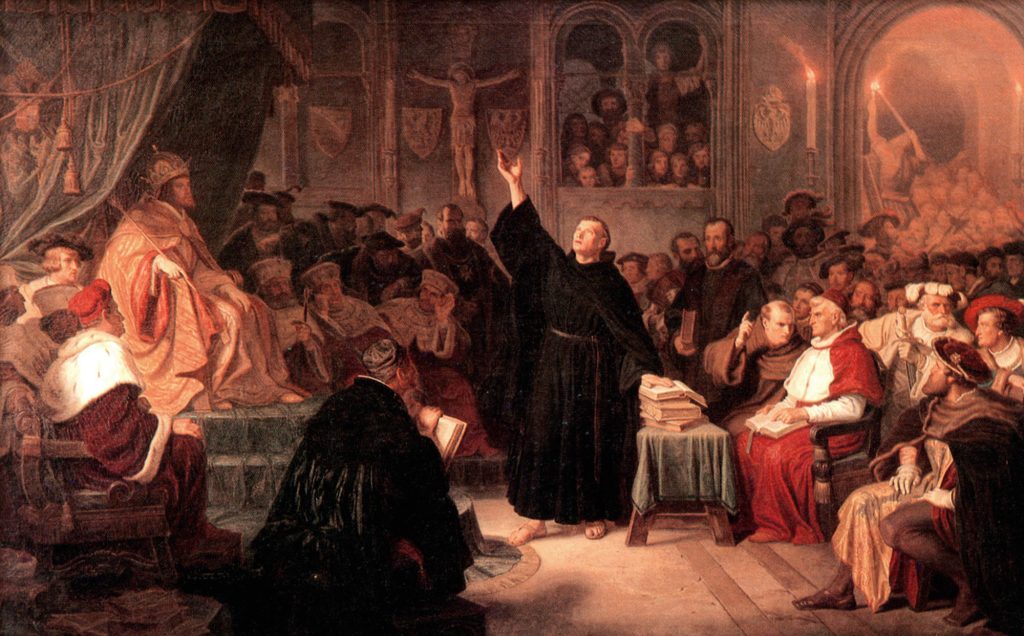The Comprehensive Evolution and Lasting Influence of Protestantism: A Thorough Exploration
Protestantism, a prominent religious tradition within Western Christianity, emerged during the 16th-century Reformation in Europe. Its followers, known as Protestants, rejected the authority of the pope of Rome and established three fundamental convictions: the ultimate authority of the Bible, salvation through God’s grace, and the priesthood of all believers. This article aims to provide an extensive overview of the evolution and influence of Protestantism, exploring its impact on Western civilization, distinctive forms, and its current state and future prospects.
Origins and Key Tenets of Protestantism

Protestantism was born out of the rejection of certain Catholic reforms by a minority group at the Diet of Speyer in Germany in 1529. This group, which became known as Protestants, derived their name from the Latin phrase meaning “to testify in favor of something.” The primary tenets of Protestantism include the belief in the Bible as the ultimate religious authority, salvation by God’s unearned grace, and the empowerment of all Christians to act as priests.
The Bible as the Ultimate Authority
Protestants firmly believe that the Bible holds supreme authority in matters of religious truth. They emphasize the importance of individual interpretation and personal relationship with Scripture. While Protestants unite around the authority of the Bible, they often interpret it differently and place emphasis on different parts of it, resulting in diverse theological perspectives within Protestantism.
Salvation by God’s Grace

The experience of God’s unearned gift of grace is central to Protestant theology. Protestants believe that salvation cannot be earned through human effort but is solely dependent on God’s grace. This conviction contrasts with the Catholic notion of salvation through a combination of faith and good works.
The Priesthood of All Believers
Protestants challenge the hierarchical structure of the Catholic Church by asserting the priesthood of all believers. According to this doctrine, all Christians are granted the ability to intercede with God on behalf of themselves and others, confess their sins, and receive forgiveness. This belief promotes a more egalitarian and participatory approach to spirituality.
The Impact of Protestantism on Western Civilization
Protestantism has had a profound influence on the shaping of Western civilization, with its convictions impacting various aspects of society, education, ethics, and politics.
Literacy and Popular Education
The veneration of the Bible among Protestants fostered a culture of literacy and popular education. Emphasizing the individual’s direct access to Scripture, Protestants encouraged the reading and interpretation of the Bible, contributing to increased literacy rates within their communities.
The Protestant Ethic

Protestantism’s emphasis on God’s gracious gift paradoxically led to a stern standard of morality and a strong work ethic. Sociologist Max Weber coined the term “Protestant Ethic” to describe the Protestant belief that hard work and worldly success were signs of God’s favor. This mindset played a significant role in the development of capitalism and the work ethic that underpins Western economies.
The Priesthood of All Believers and Democracy
The doctrine of the priesthood of all believers challenged the hierarchical structure of the Catholic Church and contributed to the development of modern democracy. By empowering all Christians to participate in religious matters, Protestantism laid the groundwork for broader social and political participation.
Secularism and the Growth of the Sacred

Ironically, the emphasis on the priesthood of all believers and the rejection of the Catholic Church’s authority led to the growth of secularism. The Protestant emphasis on individual interpretation and the freedom to worship outside the traditional religious structures paved the way for the emergence of secular viewpoints and the separation of church and state.
Distinctive Forms of Protestantism
Protestantism took on distinctive forms in different historical contexts. While Lutheranism played a significant role in continental Europe, it did not gain the same prominence in English-speaking Canada. In Canada, Anglicanism, despite being the established church in Britain, never achieved dominance. In the United States, various Protestant denominations emerged, but in Canada, church unions were more common, leading to a few dominant denominations.
Sacraments and Worship Practices

In contrast to Catholicism, which recognizes seven sacraments, Protestants generally celebrate only two sacraments: baptism and the Lord’s Supper (also known as communion or the Eucharist). Protestant worship services often prioritize preaching and tend to be relatively informal. Congregational singing in harmony is a distinctive feature of Protestant worship.
Protestant Hegemony in English-Speaking Canada
Until the mid-20th century, English-speaking Canada was largely influenced by Protestant hegemony. Protestants held cultural and institutional dominance, shaping the country’s social fabric. However, this hegemony began to dissipate with the influx of non-Protestant immigrants and the secularization of Canadian society.
Current State and Future Prospects
In contemporary Canada, Protestants constitute 36% of the population, with the United Church of Canada and the Anglican Church of Canada being the largest denominations. However, the influence of Protestantism has diminished due to increasing secularization and interfaith marriages. The distinctive convictions of Protestantism, such as the authority of the Bible and the rejection of the papacy, are becoming less distinct as other religious groups also emphasize these aspects.
Conclusion
Protestantism, born out of the rejection of Catholic reforms, has had a significant impact on Western civilization. Its emphasis on the authority of the Bible, salvation by God’s grace, and the priesthood of all believers has shaped education, ethics, politics, and religious practices. While Protestantism has played a defining role in the history of Canada, its influence has declined in recent years due to secularization and the diversification of religious beliefs. The future of Protestantism remains uncertain, as it continues to evolve within the ever-changing religious landscape.



